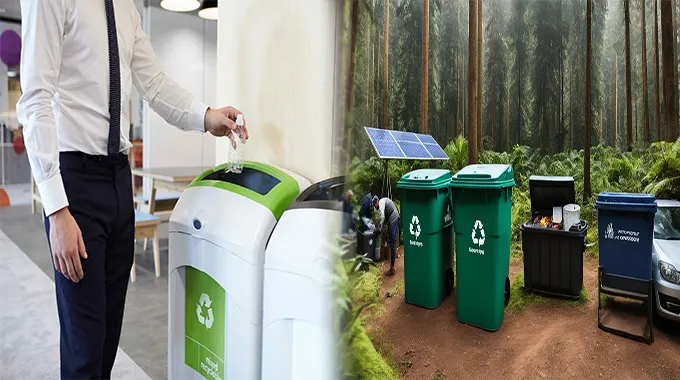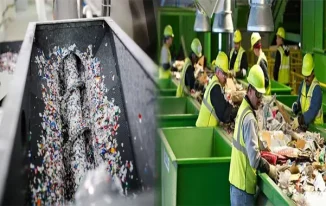In the modern world, sustainability has become a critical focus for businesses looking to reduce their environmental impact and operate in a more responsible manner. One key area where businesses can make a significant difference is in waste management practices. By implementing sustainable waste management strategies, companies can not only reduce their carbon footprint but also save costs and improve their reputation. This article will explore the importance of sustainable waste management for businesses and provide practical tips on how to implement effective waste management practices.
Importance of Sustainable Waste Management
Sustainable waste management is essential for businesses for several reasons. First and foremost, improper waste disposal can have severe environmental consequences, including pollution, resource depletion, and habitat destruction. By adopting sustainable waste management practices, businesses can minimize their impact on the environment and contribute to a cleaner and healthier planet.
Secondly, sustainable waste management can also bring financial benefits to businesses. By reducing waste generation and implementing recycling and reusing practices, companies can lower disposal costs and potentially generate revenue from selling recyclable materials. Moreover, sustainable waste management can enhance operational efficiency and improve overall resource utilization within the organization.
Tips for Implementing Sustainable Waste Management Practices
1. Conduct a waste audit
Before implementing any waste management practices, businesses should conduct a comprehensive waste audit to identify the types and amounts of waste generated. This analysis will help in understanding the waste streams and pinpointing opportunities for waste reduction and diversion.
2. Reduce, reuse, recycle
The classic mantra of “reduce, reuse, recycle” is the foundation of sustainable waste management. Business should prioritize waste reduction by limiting unnecessary packaging and single-use items. Reusing materials within the organization wherever possible and setting up a robust recycling program for materials such as paper, plastic, and metal is crucial.
3. Implement a composting program
For businesses that generate organic waste, implementing a composting program can be highly beneficial. Composting diverts organic waste from landfills, reduces methane emissions, and produces nutrient-rich compost that can be used for landscaping or gardening purposes.
4. Educate and engage employees
Employee engagement is key to the success of sustainable waste management initiatives. Businesses should provide training and educational resources on proper waste handling and recycling practices to encourage participation and support from employees. Creating a culture of sustainability within the organization can drive long-term success in waste management efforts.
5. Partner with sustainable vendors and suppliers
Collaborating with vendors and suppliers who share your commitment to sustainability can help businesses reduce waste generation throughout the supply chain. Prioritize working with companies that offer eco-friendly packaging, products, and recycling options to align with your waste management goals.
6. Measure and track progress
Regularly monitor and measure waste generation and diversion rates to track progress and identify areas for improvement. Setting specific waste reduction targets and reporting on key performance indicators can help businesses stay accountable and continuously improve their waste management practices.
Sustainable waste management practices are essential for businesses looking to operate responsibly and reduce their environmental impact. By following these tips and prioritizing waste reduction, reuse, and recycling, businesses can contribute to a more sustainable future while also reaping the benefits of cost savings and improved stakeholder relations. Embracing sustainable waste management is not only a business imperative but also a crucial step towards a greener and more sustainable world.














